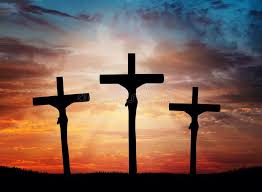Focal Passage: Joel 2:12-13
Of all the jobs on the farm, I hated to hoe more than any other. Those endless, quarter-mile rows of cotton stretched forever into the horizon, especially in the July heat. The mindless hours of swiping that blade through that red West Texas dirt sure made going to college more appealing.
“Chopping cotton” was the first job most of us farm kids were compelled to do. We were too young to drive the tractor, but Dad could always shorten the hoe handle to fit our short stature. I learned how to sharpen the edge of my hoe with a file long before I mastered long division.
My Dad and older brother flanked each side of me the day I hoed my first row of cotton. I was not amused. I reached the age where I had to trade play for hard work…at least some of the time. My attitude reflected my half-hearted effort. Chopping just beneath the sandy surface to slice the stem of the weeds, took less effort than digging them out by the roots. So, that’s what I did…for hours.
Dad tried to get me to do it right. He showed me. He scolded me. He finally just took care of his business and left me alone.
About 10 days later, Dad took me to the same field and told me to tell him what I saw. Clearly, every third row, the rows I hoed, were fresh with regrown weeds while the other two were still pristine. The weeds I sliced seemed to grow back faster and stronger, nature’s way of thumbing its nose at me.
Dad pulled my hoe out of the bed of the pick-up truck, handed it to me, and said simply, “Begin again.”
I spent the rest of that day, miserable in a field, fixing my mistake. Lesson learned.
That distant life lesson resurfaced this week after years buried in the background of my mind. A passage in the Old Testament book of Joel reminded me that when God points out our sins, he also calls us to return to him, to begin again living within the framework of his will. To be what singer/songwriter Scott Mulvahill calls in one of his songs a “begin againer.”
Look at the message God shares through the prophet Joel in his call for repentance and starting over in restored relationship with the father.
Even now,” declares the Lord, “return to me with all your heart—with fasting and weeping and mourning. Rend your heart and not your garments. Return to the Lord your God for his is gracious and compassionate, abounding in love… (Joel 2:12-13)
You see, my Dad, rather than get angry, let my mistake run its course. Despite his instruction, he gave me my free-will choice to stubbornly do things my way. When that didn’t work well, he pointed out how my half-hearted effort didn’t achieve the desired results. He wanted me to understand that doing things the right way may be harder, but it is always better. Then, with a pat on the back, he just told me to begin again. Start over. Return to the field and do it right.
Does that not sound like how God deals with his own children? We grip the handle of our free-will choices and dig just beneath the surface of obedience, with an insincere effort. Then, just a few days later the sin, the weeds, return.
God walks us out to that weed-infested life and shows us the difference in doing things his way or doing them our way. With a pat on the back, he hands us the hoe and says get after it. “Do it again, please, but this time, do it my way.” God is a God of second and third chances… and thankfully so many more. In our rebellion, even now, he calls us to return to him. To be a begin againer.
Look again at this beautiful passage.
Return to me. Three words of incredible and incomprehensible hope that speak directly to those moments when we feel it’s too late. Those days when we feel we’ve strayed too far from the Lord to find our way back. Unintended mistakes. Deliberate rebellion. Spiritual apathy. God says, even now despite all you’ve done or failed to do, you can return. It’s never too late. Begin again.
The call to return must be answered with all your heart, God says. With fasting, weeping and mourning. Beginning again isn’t just a surface level change. God desires our complete and utter surrender. Not religious gestures or rituals. Not going through the motions. Just a sincere turning away from our stubborn desires to do life our way. He wants us to return to him with all that is within us. Our thoughts. Our affections. Our desires. Our souls. Our hearts. Our strength.
Fasting, weeping and mourning capture our deepest expressions of repentance. These acts and emotions are not expressions of sorrow over being called out or regret for the consequences we face, but sincere grief over the sin itself. In these things we recognize deeply our failure for what it is and how far it has taken us from God’s way and will.
Then Joel takes it a step further. Rend your heart, not your clothes. The ancient Hebrew would tear his clothes as a symbol of repentance or being repentant. God wants to make sure we understand that the transformation must be real. Don’t just look or sound repentant on the outside while stubbornly holding on to our old self on the inside. Perfection is not required. Humility is. Be transformed and renewed. Begin again.
God’s call to return to him or to begin living again for him rests in the very character of God. Our sincere regret opens the possibility of restoration. God’s grace confirms it. He welcomes us back, not because we earned it, but because of his goodness. His patience. His mercy. His grace. His never ending and all-encompassing love. It is who he is.
After his moral failure with Bathsheba and his scheme to claim her as his own, David, the psalmist, painted a vivid picture of how to begin again. Listen to the pleading in his words.
Create in me a clean heart, Oh God, and renew a right spirit in me. Cast me not away from your presence and take not your holy spirit from me. Restore to me the joy of my salvation and uphold me with a willing spirit. (Psalm 51:10-12)
Here’s what I find interesting in his passage as I think about my need at times to begin again.
David does not ask God to fix his heart—he asks Him to create a new one. The Hebrew word for “create” (bara) is the same used in Genesis 1:1 when God creates, well, everything. It suggests that David knows he needs a fresh start—something only God can accomplish. It is a cry for transformation, not just forgiveness. Let me say that again because it’s important. It is a cry for transformation, not just forgiveness.
It’s not just that we made a mistake when we sinned. We must recognize our hearts as fundamentally broken. David doesn’t minimize his sin. He’s asking for a radical inner change. He’s asking to begin again with the right spirit within him…steadfast, faithful, true…in touch with God’s spirit within. It is an urgent desire to draw near to the God he abandoned for a time. It’s David’s desire to begin again, living in the nurturing presence of his father in heaven.
Just recognizing my mistake in that field years ago, did not relieve me of the consequences. I got to hoe it all again, but I wasn’t by myself. Dad walked three rows over. Hoeing weeds that were mine to hoe.
What a marvelous picture of God’s sacrifice and abiding presence! When we sincerely begin again, we will never walk alone. For anyone needing to begin again, to start living for Christ again tomorrow, you need to know that God’s mercy is stronger than our failure. His presence is the reassurance of his sacrificial and everlasting presence.
That passage in Joel calls us to return to God. In its context, though, the call to return comes after a long period of rebellion. Our seasons of rebellion may seem just as long. Wouldn’t it be great, however, if we returned to God each morning. Start the day with a clean slate…a pure heart and a right spirit…a chance to set aside yesterday’s failure for a fresh start within the will of father in heaven?
God’s ready to walk with us every day, hoe in hand, helping us do it right.
The every day begin againers.
Thinking Points
In what areas of your life have you been giving a half-hearted effort? How might God be calling you to dig deeper?
How does the image of my father walking alongside me while I fix my mistakes help you understand God’s presence when you face the consequences of your own sin?
Why is transformation more important to God than just seeking forgiveness? What must we do to move past regret and really change the way we live?
What would it look like for you to “return to God” every morning as an “every day begin againer?”

